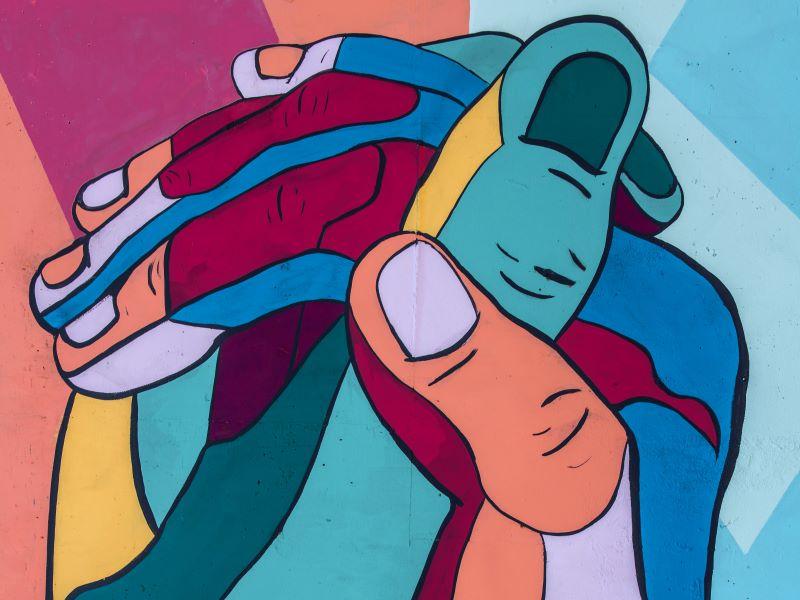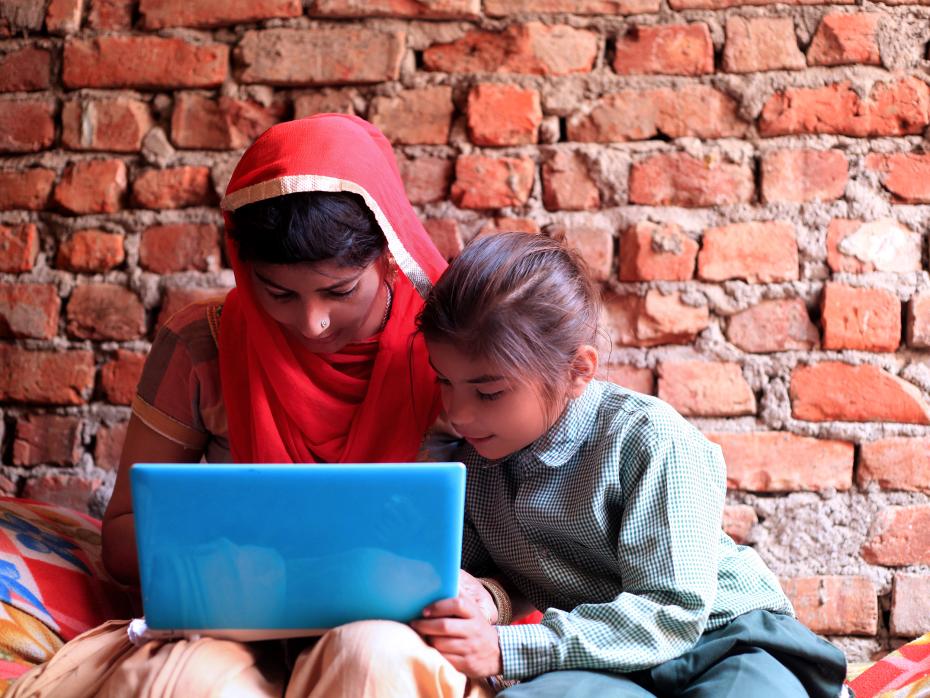The Covid-19 pandemic and digital technology have opened up new avenues to support learners, enabling us to reach and support disadvantaged groups who have traditionally been excluded from higher education.
Only one per cent of the poorest 25- to 29-year-olds in low-income countries complete four years of higher education, and even fewer of these are refugees, according to the United Nations High Commissioner for Refugees. Here we outline initial lessons from a pilot blended bridging programme for refugee learners in Uganda through the Foundations for All project.
About Foundations for All
Foundations for All is a pilot blended learning bridging programme investigating how best to enable learners whose educational opportunities have been limited by displacement and hardship to study at university.
The project is a collaboration of Mastercard Foundation Scholars Program partners: the Refugee Law Project, School of Law, Makerere University in Uganda, the American University of Beirut (AUB) in Lebanon and the University of Edinburgh in Scotland, with each bringing relevant experience.
The Foundations for All bridging programme was launched in March 2021, following participatory research and course development in Lebanon and Uganda. The teaching runs over two 15-week semesters with 40 students split between digitally equipped learning centres in Kampala and the Kiryandongo refugee settlement.
The students represent a range of ages, genders and religions and come from nearby countries such as South Sudan, Rwanda and the Democratic Republic of the Congo, as well as disadvantaged members of host communities. They speak a range of languages, including French and English. Many students have never used a computer. This context of limited financial resources and technical skills, and experience of displacement shaped the design of the programme.
Foundations for All is based on a collaborative, distributed and tailored design and teaching model. The teaching blends digital lectures, discussion boards and resource lists with face-to-face teaching such as seminars and tutorials. Support is offered by course teams including tutors, Mastercard Foundation Scholar interns and members of each institution.
Here are some key lessons based on student feedback and research so far:
Psychosocial support is vital: Programmes involving refugee learners must have integrated and extensive psychosocial support. The Refugee Law Project has developed a dedicated, unaccredited module entitled “Understanding Myself and Others”, provided training for tutors to support students and created a system for effective referrals to other services. All courses are designed according to key principles of social justice, mutual respect, equity and inclusion to create supportive and non-hierarchical learning environments.
Set clear expectations: Learners must understand the programme goals, and what pathways are available after taking the courses. The academic content must give students a reasonable chance of passing relevant higher education exams, the closest to home for learners in this case being the Makerere University Mature Entry Exam, which focuses on literacy, numeracy and specialist subject areas. While the Foundations for All pilot is unaccredited, students consulted during programme development reported that they would like to see further iterations of Foundations for All to carry internationally recognised credit.
Keep content relevant: Courses in English, study skills, digital skills, mathematics and numeracy, and a unique psychosocial support module have been designed to equip students with skills and knowledge that will assist them in accessing and succeeding in higher education. The curriculum is contextually and culturally relevant, especially important if reusing or adapting learning material from universities in the Global North.
Explain university study: It is key to demystify university to first-generation students by making explicit the skills, norms and practices that surround it. In all our resources, we stress that it is legitimate to receive support with skills such as using digital tools, organising and planning studies, and critical thinking and writing.
Provide practical advocacy and support: Practical assistance must be provided to ensure students have access to study facilities, IT and connectivity, as well as advocacy and support to navigate the complexities of higher education entry and scholarship availability. While Foundations for All does not yet include dedicated scholarships, this is something we will work towards because it will be vital in providing learners with meaningful pathways to higher education.
Help students make the most of blended learning: We have been able to combine the resources of three institutions to offer teaching materials across borders, blending the support of an in-person environment with extended resources made possible through digital teaching platforms. However, specific teaching on digital skills is critical to equip learners with the skills needed to fully engage with digital materials and platforms.
Account for uneven connectivity: Our teaching materials are uploaded on to Kolibri, an open-source platform designed for making rich online educational content available offline. Kolibri includes an extensive library of preloaded content, as well as providing the facility to upload new teaching materials such as videos, readings and information sheets, and even interactive elements such as quizzes. Tutors can customise the weekly lesson plans and teaching to fit the classroom setting, their particular students, and the delivery speed at which they are working.
Provide mentorship: Foundations for All students have the opportunity to pair with volunteer mentors, who are students already enrolled in courses as Mastercard Foundation Scholars, a scholarship aimed at talented African students who are financially disadvantaged, at American University Beirut, University of Edinburgh, and Makerere University. This virtual peer-to-peer support provides opportunities for mentors and mentees to enhance their personal development through learning from each other.
What happens to refugee students after bridging programmes?
We support our students to apply for scholarships and to take access exams in Ugandan universities, where they pay local fees. Many of our students are talented and would probably fulfil the entry requirements of universities abroad, but scholarships and financial support for refugees to enter higher education overseas are extremely limited. The Foundations for All pilot is key in providing information to the Mastercard Foundation to support its ongoing interest in refugee access to higher education.
However, access challenges will most likely remain until universities and governments in the UK and elsewhere step up to reduce financial and administrative barriers for refugees to enter and complete higher education.
This resource was collated by Kate Symons of the Open University and Georgia Cole at the University of Edinburgh, with input from the Foundations for All team:
Refugee Law Project: Martha Akello, Mary Kampogo, Apollo Mulundo, Robert Egwalu, Annet Bagumirabingi, Cosmos Lugala, Sandra Nanunja, Suubi Akula Anderson, and Joel Acidri
American University Beirut: Rabih Shibli, Maha Haidar, Brooke Atherton El-Amine, Ali Nehme, Raghda Ziadeh and Eliana Sleiman
University of Edinburgh: Michael Gallagher, Jill Haldane, Juan-Jose Miranda and Jean-Benoit Falisse




comment